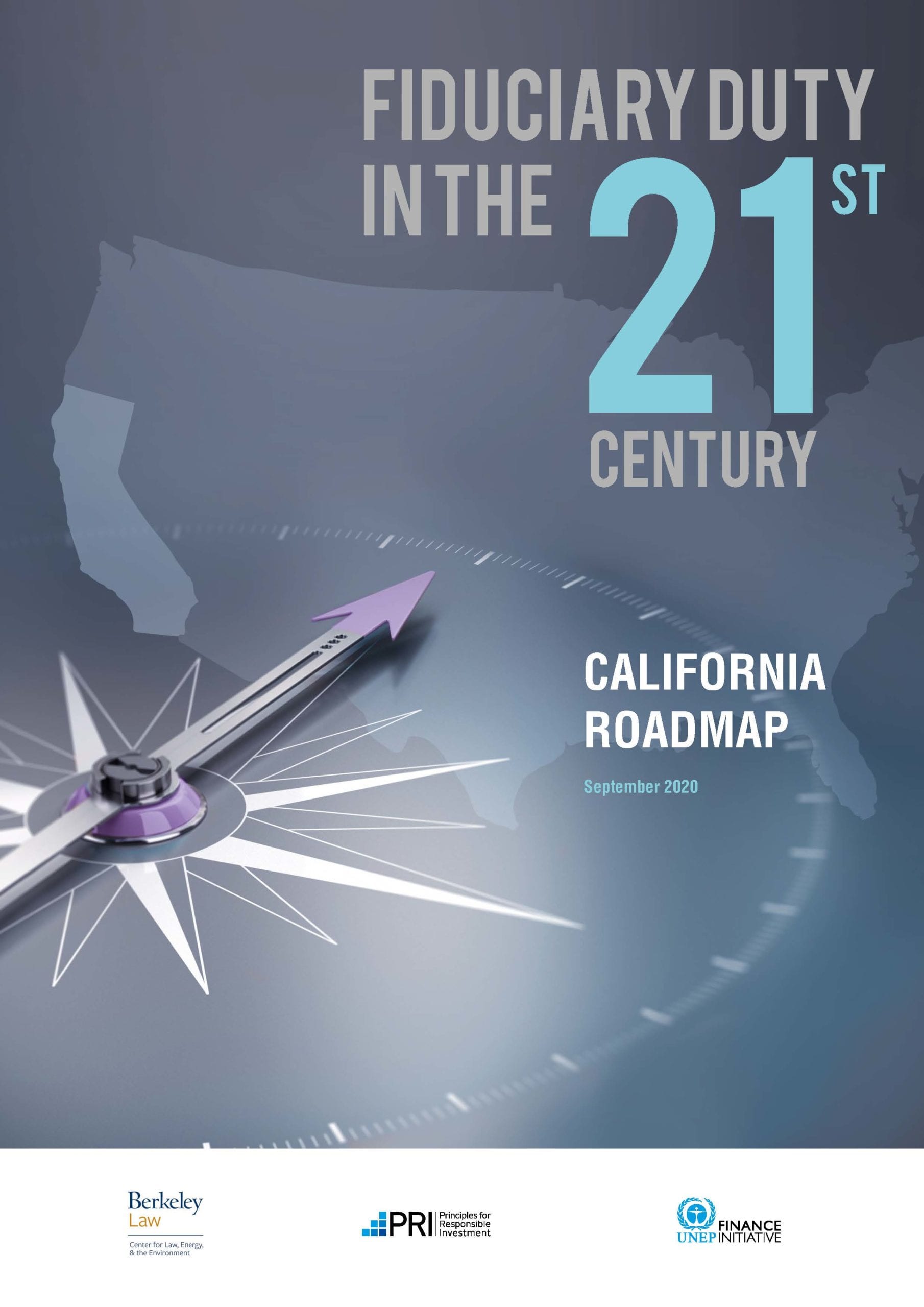September 2020
As policymakers, private investors, and elected leaders increasingly recognize the systemic risks facing the global economy due to climate change, leaders in the investment community have begun to identify the clear link between consideration of environmental, social, and governance (ESG) factors and fulfillment of the fiduciary duty to make sound investment decisions that minimize financial risk. And California, which has long led the nation in innovative climate, public investment, and corporate governance policy, has an opportunity to take landmark steps to strengthen ESG integration throughout the state’s economy.
CLEE’s Climate Risk Initiative has partnered with the Principles for Responsible Investment, a UN-supported international network of investors focused on integration of ESG issues in investment practice, to craft a roadmap for California leaders to advance this effort. The California Roadmap, based on CLEE research and expert interviews with leaders from throughout the state’s economy, offers over 40 recommendations for state legislators, key financial regulators, public pension funds, and private investors to better integrate ESG issues in investment decision-making throughout the state. Key recommendations include:
- Directing all financial and investment advisors to ask retail investors about their preference in ESG-aligned investment opportunities, and to offer them those opportunities if desired.
- Requiring all publicly traded California companies to conduct climate risk disclosure in accordance with the Task Force on Climate-related Financial Disclosures.
- Conducting climate risk stress testing for all financial institutions and insurers licensed in the state.
- Adding ESG-related disclosure requirements for projects funded by state financing authorities.
Read the blog post on Legal Planet, A Responsible Investment Roadmap for California
Contact Dave Jones or Ted Lamm for more information.
